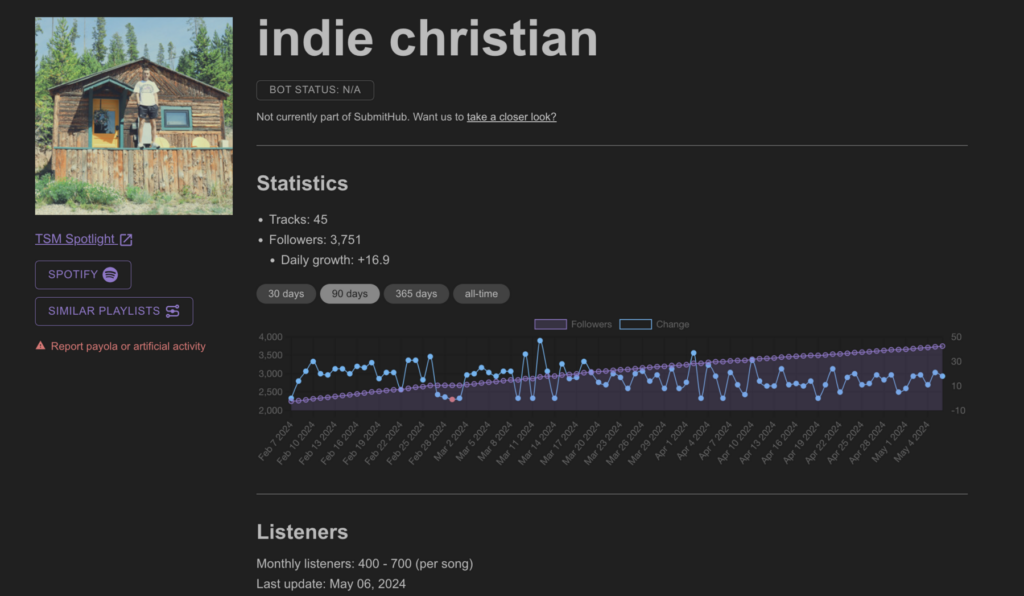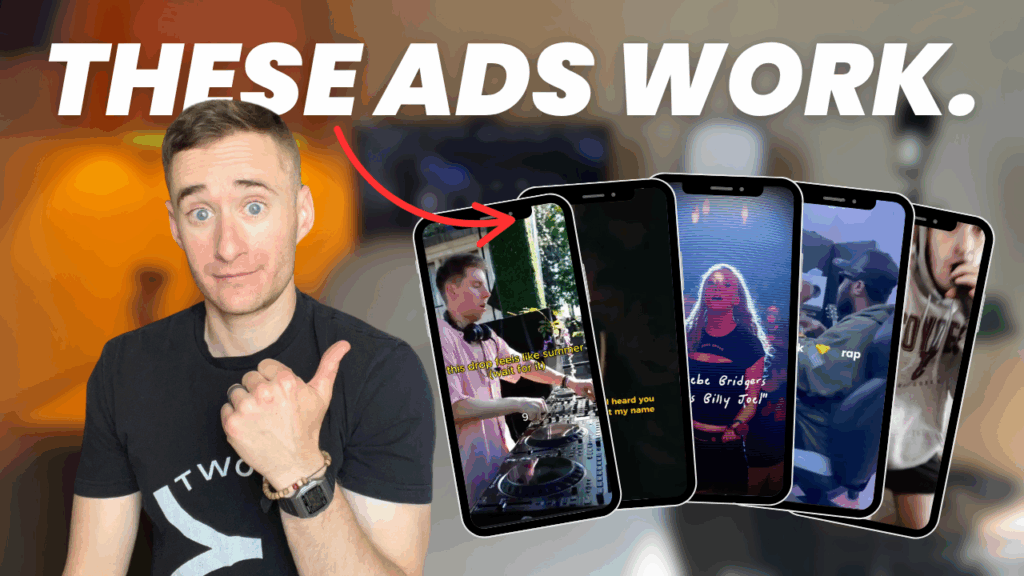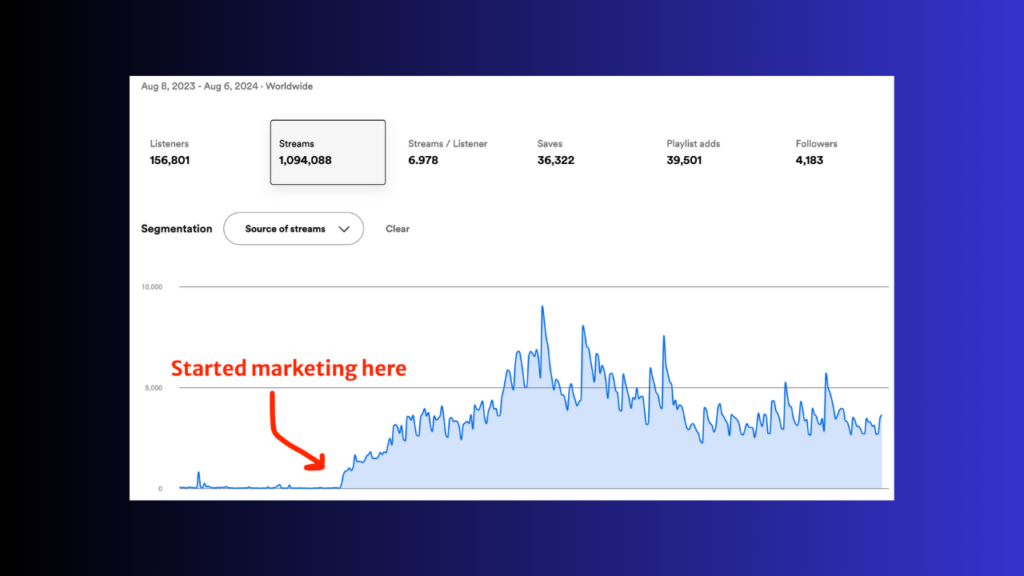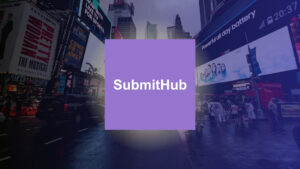I’m writing this from a new desk.
Well, new to me; I got it at a thrift store. My old desk, as I mentioned last week, recently disintegrated into 37 separate pieces during our move. Like me, it didn’t deal well with change.
Anyway, what I want to say about this new desk is that I don’t like it.
It’s a standing desk, which I thought might be helpful for my posture. The good news is that my neck and shoulders do feel a little better. The bad news is that every time I so much as breathe near the desktop, the whole contraption creaks like an attic door in a haunted house. Relatedly, every time I touch a key on my keyboard, the desk wobbles back and forth like a Jenga tower made of Jell-O.
I think I know why someone left this at Goodwill.
The point of all of this: If you have any recommendations for where to get a good desk, I’m all ears.
Unless you say Ikea.
Okay, now onto the actual topic of today’s newsletter:
I spoke with Jason (the founder at SubmitHub) a couple of weeks ago.
And shoot – he just keeps building cool stuff. If you haven’t used SubmitHub in a while, it’s worth another look. There’s so much on the platform now that it’s honestly hard to keep track of it all.
Here are three features you might not have heard about.
1. AI-based song genre analysis
You know how you never feel quite comfortable applying overly simplistic genre labels to your preciously unique song? Not to worry – now you can get AI to apply those overly simplistic genre labels instead.
Here’s how it works: You paste a link to your song from SoundCloud, Disco, or YouTube into this confining little box. Then an omniscient AI tells you the final, objective truth about your music “using an algorithm developed by the Music Technology Group at UPF in Barcelona,” which represents and then transcends the totality of recorded human wisdom.
I’m being a little bit tongue-in-cheek, obviously. But for what it’s worth, I’ve found this tool to be pretty helpful.
Getting your genre tags right is an important part of figuring out who and where to pitch, but I’ve always found it to be difficult. AI gives an easy starting place, even if it’s not necessarily the final truth.
- Playlist and artist checker
Want to see if a playlist has bots before pitching? Just paste the playlist link here, and you’ll see follower growth data without a date range limit. Sharp spikes up or down typically signify bots.
You’ll also see an estimate for how many monthly listeners the playlist drives for an average song.
Here’s what the result looks like for my Indie Christian playlist:

(In case you’re wondering, yes, the playlist cover art is a picture of me standing awkwardly on the railing of an Airbnb that Alli and I stayed at for our anniversary last year. “Take a picture of me up here!” I said. It took me a distressingly long time to figure out how to get down.)
Probably the coolest feature here is the “Similar Playlists” button on the lefthand side of the image above. Hit that, and you’ll get a list of playlists that are comparable to the one you’ve analyzed, based on the “Discovered on” sections of featured artists. If you’re trying to put together a list of playlists to pitch, it’s a quick way to get some good ideas.
The artist checker tool works similarly: You just paste in your Spotify artist link, and SubmitHub will spit back a list of the top 50 playlists on which your music appears, along with little notes on playlist quality.
None of this is groundbreaking, and to be honest, I still mostly use artist.tools for these sorts of things. But it is helpful to have it all inside of the platform on which you’re actually pitching.
- SubmitHub links
Okay, this is the feature I’m most excited about.
The gist: You need a landing page software if you want to run Meta ad conversion campaigns. (Here’s why.) Historically, there have been a bunch of options for this, including Hypeddit, ToneDen, and FeatureFM, among others. All of them work (well, except ToneDen now ha), but each one costs at least nine bucks a month, and many of them cost more.
Not SubmitHub. It’s totally free.
Seriously. The link feature does everything you need a landing page software to do (including passing back Conversions API data and custom events) and you don’t have to pay a cent to use it. Plus, as Jason showed me on our call, it’s ridiculously lightweight – which means it loads in a flash.
To be honest, if you’ve been using one of the other options solely as a landing page software for conversion campaigns, I don’t see why you wouldn’t switch to this. Again, it’s free, and it’s arguably the best solution on the market for that use case. There’s even a little “Import” button that Jason cheekily threw in there, which will automatically transform another landing page link into a SubmitHub link. It works like a charm.
Now, if you’re using another landing page software because of their automated ads or link gate features, then you’ll probably want to stay put. That stuff isn’t built in here yet (although it might be soon).
For what it’s worth, I’ve personally used Hypeddit for the past two or three years to run ads for my agency clients, and I’m actually planning to switch over to SubmitHub links going forward.
I mean, why not? It’s faster and it’s free.
Look, I’m not trying to make this an advertorial for SubmitHub.
I’ve had a love / hate relationship with the platform for years; it’s certainly not all roses. And the next time I see actually-valuable feedback on one of my song submissions will be the first.
But, overall, I really appreciate what Jason is building. It’s impressive on a sheer technical level (the dude is a legit coding genius), and it’s also impressive for its ridiculous transparency.
Maybe I’ll hate the platform again next year. But for now, I think it’s more than worth checking out.
All right, I’ll end it there today, partly because it’s a nice stopping point and mostly because I’m starting to feel a little sea sick from typing on this wobbly monitor.









